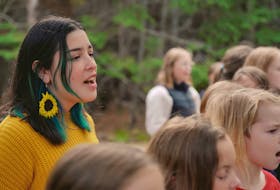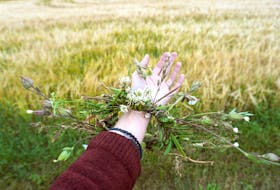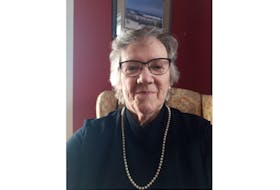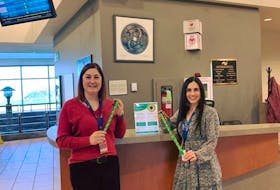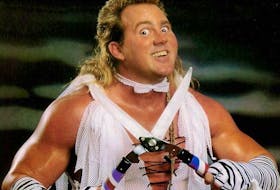There’s no applause, but on the other hand, you don’t have to sleep on a bus.
Touring musicians were sent home by the pandemic a year ago, though some have since been able to attract a virtual audience with online shows.
Lyle Lovett has performed on thousands of stages around the world, but his only venue these days is “basically a closet off my garage by myself.”
Lovett’s last live date was March 7, just two weeks after a doctor he knew in Santa Rosa, Cal., came backstage and told him he needed to stop greeting fans after shows, and to get home as soon as he could.
“’Give this two or three weeks and it’ll be a pandemic,’ is what she said,” Lovett remembered during an interview on Thursday. “I naively thought, when I arrived back home on the 8th of March, that if everybody isolates and everything shuts down for two or three weeks, this’ll all be over and we can go back to work.”
A month later it was plain that he’d been overly optimistic, and had to figure out what was next.

“My wife April and I looked at each other and thought, goodness, what are we going to do for work? I’m so fortunate to have had a long career but the main way we make a living is by playing live dates,” he said. “So, it became very serious very quickly.”
After being exposed to Zoom for the first time, like most of us, and being invited to play for a couple of fundraisers, Lovett decided he was proficient enough “to push buttons on my computer and set up a camera and do it.” To be sure, and because he needed the sound to be better than the rest of us do for office meetings, he enrolled the aid of a producer who works remotely. Just like that, Lyle Lovett was back on stage.
As a test, he offered a free show in May with John Hiatt, streaming it on all his social media channels.
“And a lot of people seemed to watch, which was encouraging. Then in June, I did another free show to the public with my friend Robert Earl Keen, and in July another free show with Shawn Colvin,” said Lovett, who then partnered with Chris Isaak, Elvis Costello, the Large Band and Jason Isbell.
“Because every guest is really different, every show has been really different. The first show we did for a ten-dollar ticket – that’s our ticket price – was with Dwight Yoakam. I’ve really just called people I knew, looked through my phone and called up my friends.”
On Friday, he’ll team up again with long-time friend Vince Gill. (Tickets)

“Vince Gill is so charming, and his sense of humour always comes through. Vince is just an icon in the world of country music and is really the torch-bearer of country music’s legacy for our generation.”
The shows are done live and are scheduled to run an hour, though none yet has been that short.
“We’re not on a strict time schedule because we don’t have to be,” Lovett said. “The shortest one has been 70 minutes and the longest one has been two hours. I just encourage my guests to say and play whatever they’d like to, so sometimes they run longer. I try to have a handful of songs in my pocket that I’ve played recently enough that I remember the words. Really, I wait to see what my guest is playing, so that I can play a song that would be an appropriate response.”
Lovett said with no audience in front of him as he plays, in fact, alone, he has to constantly remind himself that people are watching.
“It’s easy to get lost in the isolation of it, even though you’re on a screen with somebody. It’s been an adjustment, and as different as its been, I feel like I’m getting more used to it,” he said, wondering whether online shows will influence what live concerts will look like when they return. “The most consistent comment that I see from people is ‘Gosh, we miss live music, but this is the next best thing.’ I don’t think this sort of performing will ever take over from live performing, but the ability to reach people who might not be able to attend a live show, who might be in a different part of the country but might want to see a show from Halifax, Nova Scotia, and see what that’s like, I think that kind of interest might still exist.”
Promoters and booking agents have been flexible in trying to get acts in front of live audiences as soon as its safe, Lovett said, but he’s not putting gas in the bus just yet.

“We’ve recently had to push dates that were booked for July and August of this year, and are actively trying to hold dates starting the end of September and into the fall,” he said. “Some of those are dates in Ontario, so we’re hopeful.”

